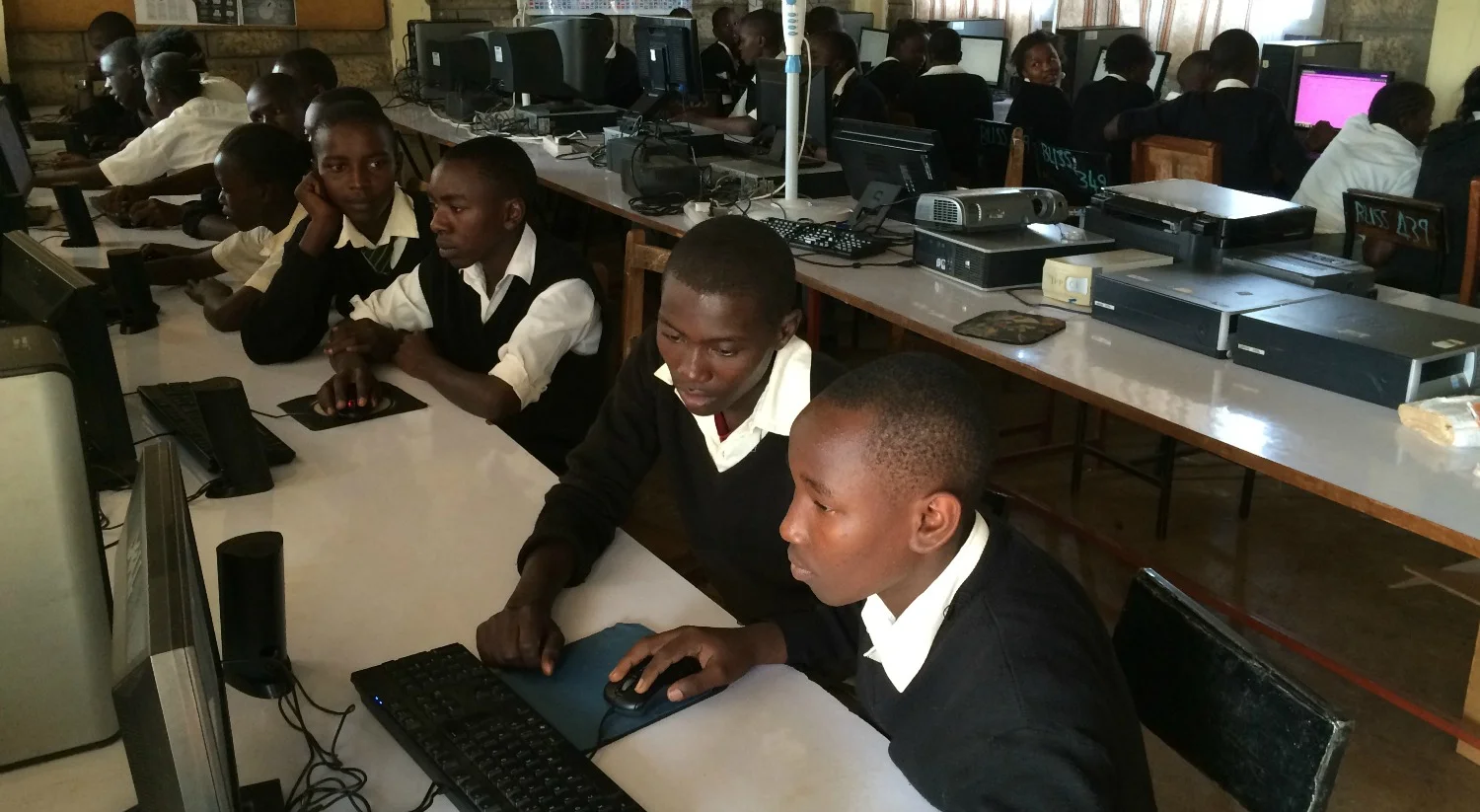Kithoka Digital Village
The Kithoka Digital Village project is an ambitious and longstanding partnership to provide affordable high-speed internet access to the residents of Kithoka. While most people in Kithoka have cell phones, they are mainly used for voice calls and text messages. Internet connectivity is still very expensive and inaccessible. In the belief that internet connectivity will be essential for schools, students, and businesses in the 21st century, this is a primary effort of MichiKen.
The project started in 2009 when current directors at MichiKen designed and implemented a thirteen computer workstation laboratory at Bishop Lawi Imathiu Secondary School (BLISS), as part of a Kenya Urithi Education Fund project. Since then MichiKen has maintained and expanded this lab to ensure that BLISS students and teachers learn computer technology skills and have access to 21st-century educational resources. With BLISS's rapid expansion to over 700 students, MichiKen has increased bandwidth and added WIFI support beyond the computer lab into the other BLISS classrooms. BLISS has gained Kenya-wide recognition for its innovative use of computer technology for education.
In 2012, the Digital Village project extended high-quality internet to Thiiri Cultural Center and International Peace Initiatives. A central hub allows three BLISS, Thiiri, and IPI to share bandwidth, and negotiate favorable terms with Orange, the internet provider. Further expansion is planned for other primary and secondary schools as well as some local businesses. A longer-term goal is to establish community kiosks for affordable internet access via WIFI to all Kithoka residents.
In 2015, the Digital Village was further extended to the Kithoka Polytechnic School, and to two additional classroom buildings that were built at BLISS.
Julius Mwangi, a BLISS graduate, is our local MichiKen System Administrator. Initially, Julius managed the BLISS computer lab where, with guidance from US-based Michiken staff, he became an expert in maintenance and repair of all of the equipment. While working at BLISS, Julius also completed a certificate (associate) diploma in Information Technology from Jomo Kenyatta University. He has since received his Bachelor's degree in Computer Information Systems from Kenya Methodist University. Now Julius has the additional responsibility of managing the Kithoka Digital Village network. This model of hiring, training, and mentoring local Kenyans for our projects is viewed as a key success factor for Michiken.
For engineers reading this posting, it is worth noting that this has been a very interesting project technically. High-speed internet service is still far from ubiquitous in the area of Kenya where we work. In our effort to make use of the latest technology as it becomes available, we have already gone through five major iterations, making use along the way of microwave relay transmitters, 80-meter signal reception towers, and antenna amplifiers. The University of Michigan E-Magine team has worked closely with us during this entire time, as well as several senior Kenyan telecommunications engineers and companies.
In 2019, we were able to upgrade to a 10Mbps fiber connection supplied by Safaricom, the local ISP. While this internet service, costing $110/month, has been a major step forward for us, the 10Mbps bandwidth is still only a tenth of what we would need to enable streaming in all BLISS classrooms.
2020 saw a large increase in demand as many schools and universities in Kenya were closed or transitioned to distance learning due to COVID. MichiKen has set up six WIFI hotspots around Kithoka including at two primary schools and several churches. Teachers and students are making heavy use of this free internet access to do their school work. To accommodate the increased demand, MichiKen has increased the bandwidth from 10Mbps to 25Mbps at a cost of $330/month.
The COVID years were difficult in Kithoka. The WIFI hotspots were used heavily during that time by university students who came back home to Kithoka but needed to attend classes remotely. Usage, and related costs, have continued to grow.
In 2024, we were able to install a SpaceX Starlink connection at the BLISS school. With a capacity of 200Mbps at a cost of only $40/month, it has proven to be much faster, cheaper, and more reliable. It has allowed instructors to stream courses in classrooms.

